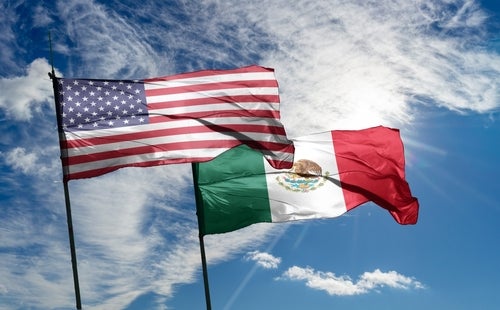The Office of the United States Trade Representative states this is the sixth time in which the US and Mexico have come together to institute a formal course of remediation under the Facility-Specific Rapid Response Labor Mechanism (RRM) of the United States-Mexico-Canada Agreement (USMCA).
It says the plan is designed to tackle what it claims is "existing Mexican labour law violations" at the Aguascalientes facility, which is a sewing operation and part of a larger production chain for the manufacture of denim jeans. Plus, it wants to ensure there are no further occurrences in future.
The plan follows a formal request presented by the US to Mexico on 12 June 2022, prompting Mexico to evaluate potential infringements on freedom of association and collective bargaining rights among INISA employees. Subsequently, Mexico identified that workers within the garment facility were indeed facing denials of their rights.
INISA had not responded to Just Style's request for comment at the time of going to press.
Ambassador Katherine Tai expressed the significance of the remediation plan, stating: "We will closely monitor this remediation plan to ensure workers at the INISA facility can freely exercise their freedom of association and collective bargaining rights.
“Today’s announcement reflects how continued collaboration between the United States and Mexico leads to concrete and effective measures to address existing labour violations and prevent new ones."
The steps Mexico's government will take as part of the remediation process
- Ensure INISA will publish and adhere to a public, written statement affirming its commitment to uphold freedom of association and collective bargaining rights, ensure neutrality regarding union choices, and refrain from interfering in union activities or influencing workers’ views on unions
- Ensure INISA issues transparent guidelines that govern personnel behaviour at the facility, in line with the neutrality statement and rights provided to workers, union representatives, and advisers.
- Ensure INISA enforces a zero-tolerance policy for guideline and neutrality statement breaches
- Ensure all INISA personnel and union representatives receive training on company guidelines and neutrality statements
- A dedicated telephone line and email address to enable workers to anonymously report instances of intimidation, coercion, threats, non-neutrality, or interference in union activities
- In-person training on workers' rights will be conducted during regular working hours, supported by informational materials on freedom of association and collective bargaining
- The Government of Mexico will initiate sanctions proceedings as per Mexican law against individuals, labour organisations, or companies found in violation of Mexican law.
Deputy Undersecretary for International Affairs Thea Lee praised the cooperation between the two nations, emphasising the importance of companies respecting representative unions and genuine collective bargaining. Lee adds: "We applaud the parties for reaching this agreement, and we again recognise the strong collaboration with the Government of Mexico in protecting workers’ rights."
Dr Sheng Lu, associate professor in the Department of Fashion and Apparel Studies at the University Delaware tells Just Style exclusively:
"Biden administration is known for its so-called 'worker-centered trade policy.' Instead of focusing on conventional market access negotiations such as tariff cuts, the Biden administration has been active in eradicating forced labor in global supply chains and promoting workers’ rights both in and outside the US.
"Notably, the Biden Administration has invoked the US-Mexico-Canada Agreement (USMCA) Rapid Response Labor Mechanism (RRM) seven times as of June 2023, although a formal course of remediations was reached in most cases.
"Likewise, we could also expect labour standards and human rights issues to play a more significant role in the Biden administration’s approach to renewing expiring programmes such as the African Growth and Opportunity Act (AGOA) and Haiti’s HOPE/HELP programme."
The mutually accepted deadline for finalising the rectification process is set for 10 November 2023.















